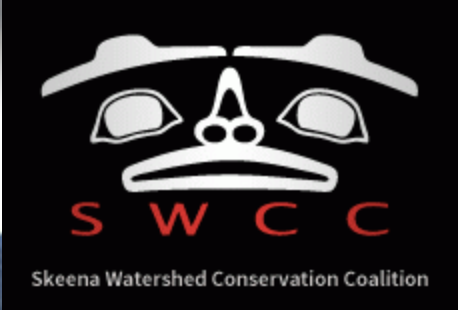Our Work
For All of Us
Our Projects & Partnerships
*CURRENTLY UNDER CONSTRUCTION*
Thank you for your patience!
Youth On Water & women on water (wow)
At the heart of the SWCC Youth on Water (YOW) program is our recognition of the immense value of the Skeena watershed and the Sacred Headwaters.
Skeena Energy Solutions
Community-generated solutions supporting the local culture, economy, and ecosystems of the Upper Skeena.
Bioremediation Project
In a time where the impacts of climate change are seen all around us, there is hope and a sustainable solution to deal with environmental issues.
Field Schools
~
LNG & Pipelines
The Skeena estuary contains an abundance of life. It is among the most productive ecosystems in the world and home to a variety of unique plant and animal communities including wild salmon and steelhead. The Liquefied Natural Gas (LNG) industry could be coming to the Skeena Watershed for the first time.
Community Directed Initiatives
– Peace and Unity
Sacred Headwaters Initiative – completed
Northern BC’s Sacred Headwaters is a rare and special place. Here in a vast alpine basin, three of the Northwest’s greatest salmon rivers are born: the Skeena, the Nass and the Stikine. Stone sheep, caribou, grizzly bears and wolves call the Headwaters home, and the area is critically important to the Tahltan First Nation.
forestry
In this section: Talkin’ Loggin, Forests & Carbon, Kispiox Forest Timber Supply Review
Skeena awareness project -completed
A discovery expedition of the Upper Skeena lead by Director, Jim Allen. After completing a Swiftwater Rescue Technician course, the 10 person field crew completed 2 consecutive 10 day Upper Skeena River rafting expeditions in hopes of finding and reviving ancient heritage trails for archaeological documentation and development of eco-tourism.
Skeena elder stories project – completed
SWCC volunteer, Gretel Miles, collected the stories of the lives of the elders & oldtimers of the Upper Skeena with the idea of preserving rich, shared heritage for future generations, as well as our own. Gretel compiled the interviews into a book.
Skeena swim 2009 – completed
The summer of 2009 saw Ali Howard become the first person on the planet to ever swim the entire 610km Skeena River. After 26 days of whitewater, boulder gardens, crazy currents and community celebrations, she had done it!
SWCC Media Corner
We have a new web page full of photos, videos, graphic recordings, and more!
Click Here to View

Recent Comments